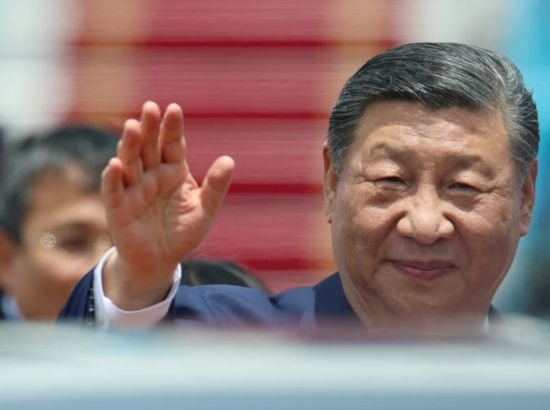
China Rejects Trump’s 100% Tariff Sanctions, Says U.S. Approach “Unfair and Counterproductive”
Updated: October 14, 2025, 07:43 AM IST
In a fresh blow to U.S. President Donald Trump, China has outrightly rejected the 100% tariffs and sanctions recently imposed by Washington, calling the move “unreasonable” and warning the U.S. to correct its approach. The Chinese government also urged dialogue as the only way forward to resolve rising tensions between the world’s two largest economies.
Chinese Foreign Ministry spokesperson Lin Jian posted an official statement on X (formerly Twitter), conveying President Xi Jinping’s position. “China rejects the U.S. sanctions. Threatening China with high-level tariffs is not the right approach,” Lin wrote. “Both sides should resolve differences through dialogue to ensure stable, strong, and sustainable bilateral relations.”
The move follows President Trump’s announcement of 100% tariffs on Chinese goods, citing national security concerns and China’s dominance over rare earth elements (REEs)—materials crucial for electric vehicles, smartphones, renewable energy systems, and defense manufacturing. Trump’s decision further strained already fragile U.S.-China relations.
Earlier, Trump had attempted to ease tensions with a social media post, calling President Xi “a highly respected man” and expressing optimism about bilateral cooperation. “The world and America should not worry about China—everything will be fine,” Trump posted. “We want to help China, not hurt it.”
Despite rejecting the tariffs, China has not yet announced countermeasures, signaling that it is keeping diplomatic doors open ahead of a possible meeting between Trump and Xi during the APEC Summit in South Korea.
However, spokesperson Lin Jian warned that if the U.S. continued unilateral actions, China “will not be intimidated” and knows “how to defend its rights and interests.” He added, “We don’t seek confrontation, but we won’t back down either.”
China’s Ministry of Commerce also labeled the U.S. tariff policy as “illegal and discriminatory,” while defending its control over rare earth elements as “fair and necessary for national security.” Meanwhile, Beijing described its restrictions on U.S. semiconductor imports as compliance with international obligations.
Rare earth elements (REEs) are a group of 17 chemical elements including Scandium, Yttrium, and the Lanthanides, essential for modern technology. China controls nearly 70% of global production and 90% of refining capacity, making it the dominant player in the supply chain.
On October 9, China introduced export licensing requirements for foreign companies dealing with REE-based products, effectively tightening supply. In retaliation, President Trump imposed 100% tariffs on all Chinese goods on October 11, set to take effect on November 1, and hinted at additional steps—such as canceling student visas for Chinese nationals and restricting software imports.
The escalating dispute marks one of the most serious trade confrontations between Washington and Beijing since 2018, reviving fears of a new tariff war that could disrupt global markets.
Tags: Donald Trump, Xi Jinping, China-US Relations, Trade War, Rare Earth Elements, Global Economy, APEC Summit